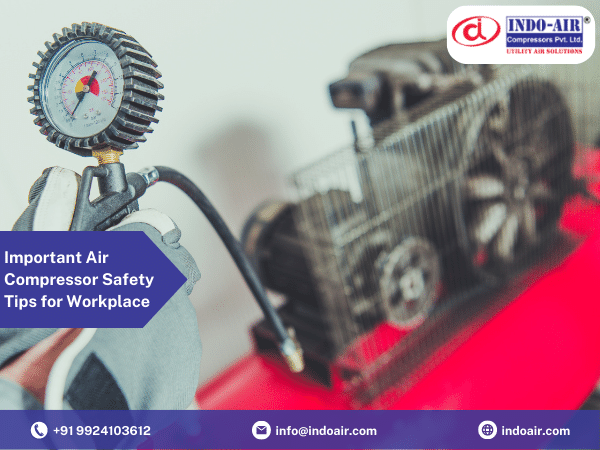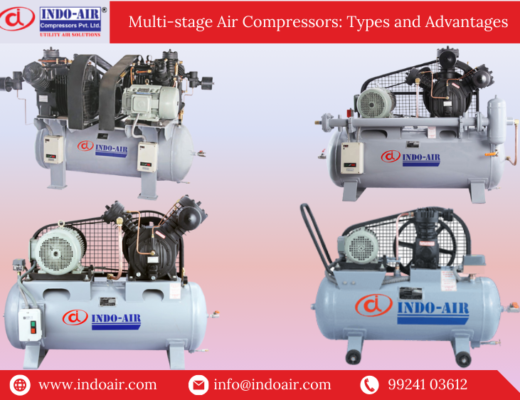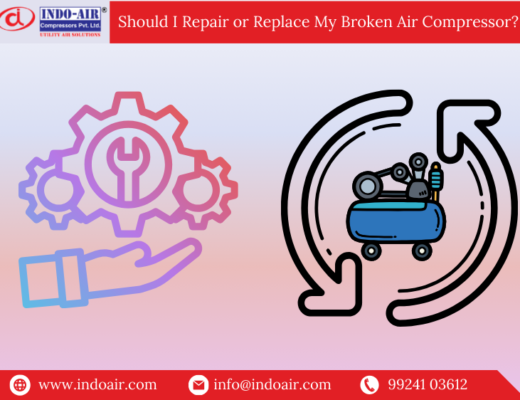Reciprocating air compressor
Air compressors are complex pieces of equipment with several potential risks to user safety. Air compressors must have safety precautions in place to safeguard operators and other workers, just like any other powerful gear. To keep your workplace safe throughout compressor operations, repairs, and maintenance, screw compressor manufacturers across the world provide air compressor safety checklists which must be followed . It’s crucial to remember a few fundamental safety tips while working with any kind of industrial machinery. If you’re not attentive, it’s easy to neglect the need of wearing the appropriate gear, scanning your surroundings, and never leaving your tools alone. Nevertheless, they may be a game-changer in terms of protecting you and your surroundings from any potential danger.
Air Compressor Safety Checklist
Completely shut down the machine before maintenance
Shut off your compressor, unhook it from the power source, and make sure the air pressure has been released before doing any repair or troubleshooting. Compressors that operate automatically can start whenever they choose.
Give sufficient cool time
Touching hot compressor components, coolants, or lubricants while they are in operation or just after might result in burns. Additionally, if oil or gasoline are added or changed while the appliance is still hot, the appliance may start to smoke or catch fire.
Drain the tank frequently
Eliminate the Compressor Tank. Frequently: Draining the tank keeps it from rusting and blowing up. All workers in the region are at risk due to a rusted tank.
Keep vital body parts at a safer distance
An air compressor is a revolving piece of machinery that may easily grab loose garments or seriously hurt a part of the body. Belts, drive couplings, and cooling fans are all components that require the utmost care.
Double check the electrical points
To prevent electrical damage or fire, air compressors must be hooked into a grounded electrical socket.
Choose the right location for the compressor
If not in a well-ventilated area, compressed air fumes can be dangerous. To prevent corrosion and electrical problems, the space should also have clean, dry incoming air.
Never use PVC pipes
PVC pipes are not considered to be safe or appropriate for use in compressed air applications. It has the potential to break or shatter, scattering fragments of debris throughout your plant.
Check pneumatic tools and hoses
Pneumatic tools should be checked to make sure the trigger is not engaged and that the hoses are fastened before use. Unstable hoses can whip or fly off, injuring people.
Always wear safety gears
Always protect your ears and eyes. Hearing loss may result from exposure to noisy machinery like compressors, and eyesight problems may result from flying debris.
Never take compressed air lightly
Never direct any compressed air hoses or equipment towards yourself or anybody else. Even at very low pressures, organ rupture is a possibility. Additionally not meant for inhaling, industrial pressured air. Air must be filtered, treated, and monitored using certified equipment that adheres to high health and safety regulations.
Work Safety Tips When Using Air Compressors
There are undoubtedly a few additional safety precautions to consider in order to maintain control. These safety precautions must be kept in mind when using any type of industrial machinery, including air compressors and pneumatic tools.
1. Wear the proper PPE, such as safety glasses, work gloves, and hearing protection.
2. To stop machinery from overheating, keep the area cool.
3. To prevent trips, use a self-retracting cable.
4. Keep any obstructions out of the areas around exits.
5. Before operating such apparatus, become knowledgeable on how to utilise it properly.




